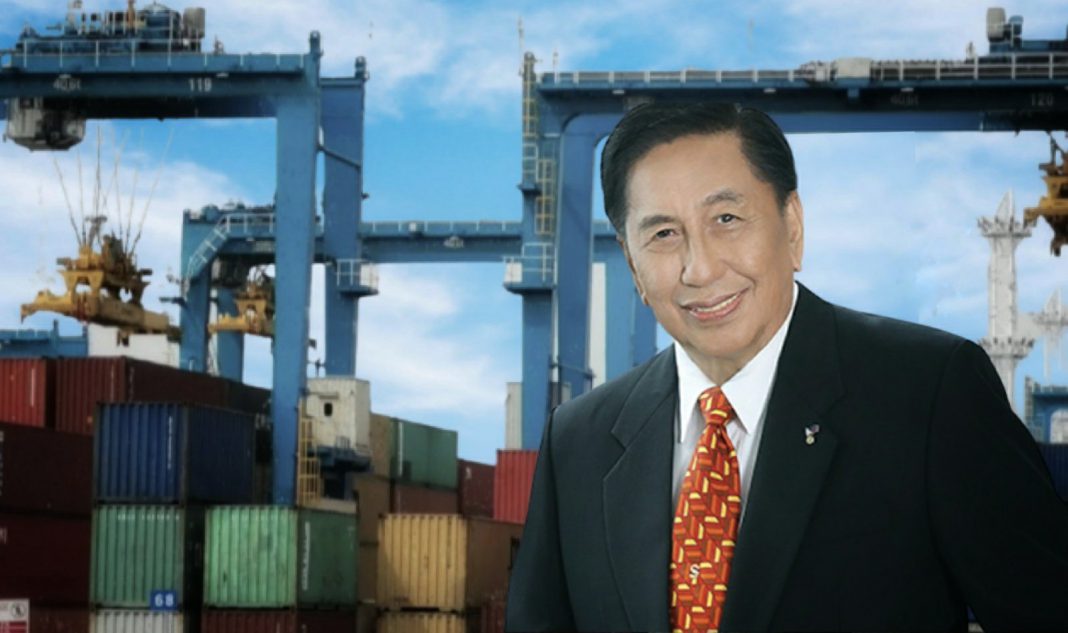By Alithea De Jesus
Graphics from THEPHILBIZNEWS
Apprise by the struggles of MSMEs and Filipino exporters, the head of the Philippine Exporters Confederation, Inc. (PHILEXPORT) has issued an urgent call for government to ensure processes and requirements for implementing the 12% VAT on indirect exports do not become another onerous burden for exporters and micro, small and medium enterprises (MSMEs).
In a letter to BIR Commissioner Cesar R. Dulay dated June 22, 2021, PHILEXPORT president Sergio R. Ortiz-Luis, Jr. bared that exporters and MSMEs have “very serious concerns” about the impact of Revenue Regulations (RR) No. 9-2021 that need to be quickly addressed.
RR 9-2021 implements the imposition of 12% VAT on exports and sale of services previously taxed 0% VAT as contained in Republic Act No. 10963 or the Tax Reform for Acceleration and Inclusion (TRAIN) Law. Dated June 9, 2021, it is set to take effect on June 27.
Ortiz-Luis, Jr. said companies worry that the implementation procedures and requirements, particularly on filing for VAT refunds, will consume more time and money, both of which they are short of.
Already discouraged and weighed down by the pandemic, entrepreneurs are hoping for “a favorable and urgent response on these issues” to help them recover from their losses and continue their business operations, he continued.
One of these major concerns is the requirement to physically file for VAT refunds at the BIR’s VAT Credit Audit Division (VCAD) in Quezon City.
“This is the exporter/taxpayers’ money that they are refunding. Imposing difficult processes is not fair, considering that there is cost of money and the negative impacts on their cash flows, particularly of MSMEs,” he pointed out.
He suggested that until an electronic system for filing is developed, the BIR should decentralize the processing of VAT refunds by setting up VCAD branch offices that can decide and act on VAT refund applications and even release the funds.
Another issue raised is the need to keep and duplicate voluminous documents, which companies regard as yet another unnecessary and additional process that transfers the burden of proof on their shoulders.
Ortiz-Luis suggested that the BIR instead issue rules on the automatic assessment of VAT refunds where input VAT exceeds output VAT in the case of MSME exporters without further need for separate forms and supplementary evidence.
“Exports account for some 30% of the country’s GDP and failures in this refund system will be a disincentive to exporters,” he said.
Also being questioned is the linking of incentives to the Strategic Investments Priorities Plan (SIPP), as the trade leader said the priority investment sectors may change depending on leadership.
Under the Corporate Recovery and Tax Incentives for Enterprises (CREATE) law, an SIPP should be drafted that will identify priority projects or activities that shall receive incentives from the government.
Exporters/exports should be a permanent beneficiary under the SIPP, Ortiz-Luis stated.
Furthermore, enterprises are pushing to have a provision included in RR 9-2021 on the full VAT refund in cash—not in the problematic tax credit certificates—within the 90-day timeframe for BIR to process and grant claims for VAT refunds.
“An efficient refund system through cash will help lessen the burden of this new policy,” he said.
And to avoid the reported anomalies that have hounded the VAT refund system, he said “a system of track-and trace will easily address this problem without disrupting the status quo especially exporters who are already [under] so much pressure.”
The policy was one of the major topics in the recent PHILEXPORT General Membership Meeting where member-exporters expressed frustration, anger and confusion on this new directive, noting that it seems to facilitate convenience for regulators in plugging issues such as smuggling, while leaving exporters and MSMEs to address the negative impacts on them.
Exporters also noted that the pro-export and pro-MSME statements by the government leave much to be desired, since regulations such as this provide contradictory impacts on them.
PHILEXPORT has opposed the imposition of VAT on exports during consultations on the TRAIN Act, which took effect in 2018. It pointed out that taking away the zero VAT rating for indirect exports would hurt the entire export community and the local industries the Department of Trade and Industry is trying to develop and strengthen.














